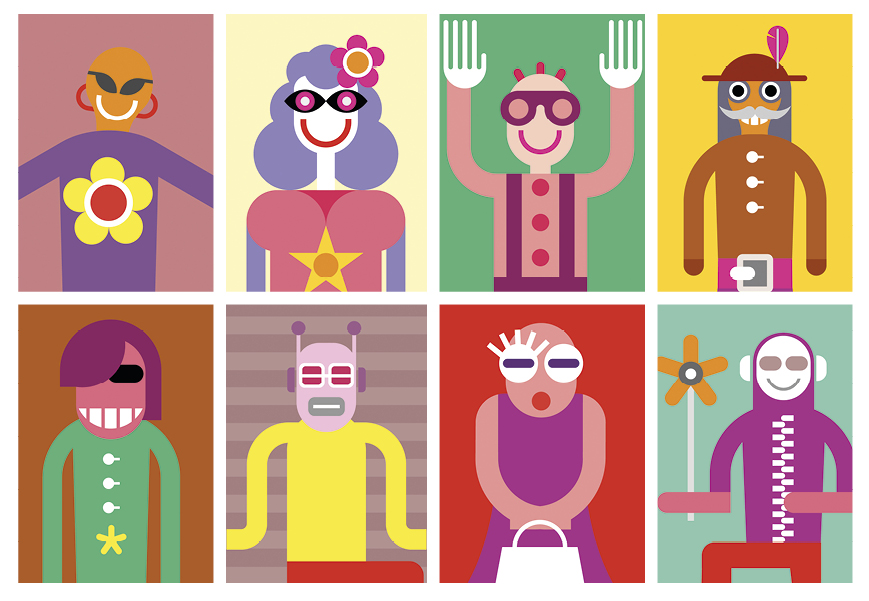Happiness Club Key 7: Resilience
Join our tribe of readers who are choosing to spread joy by creating Happiness Clubs in their own homes around the world, with a little help from Psychologies and Action for Happiness. This month, Suzy Greaves finds strategies to build our resilience

Last month, we were looking at goal-setting in my Happiness Club. We discussed which goals had created the most happiness in our lives – both personally and professionally – and also how we sabotage ourselves and how we can stop it (procrastination anyone?). We realised that having personal projects that matter to us is as important for our wellbeing as achieving the end results we’re aiming for.
Creative goals scored high in our group; planting a garden or writing a novel made us feel that we were moving forward and gave us a sense of meaning, purpose and joy in our lives.
Are you resilient?
This month, we’re looking at how we can become more resilient; our ability to cope with and bounce back from adversity. ‘All of us have times of stress, loss, failure or trauma in our lives.
But how we respond to these has a big impact on our wellbeing,’ says Vanessa King, positive psychology expert for Action for Happiness. ‘We often can’t choose what happens to us, but, in principle, we can choose our own attitude towards what happens. In practice it’s not always easy, but one of the most exciting findings from recent research is that resilience, like many other life skills, can be learnt.’
We’re all likely to experience ups and downs, so building resilience is valuable, says King. As we can’t always predict or control what life throws at us, we can build a range of skills and nurture our resources to help us respond flexibly, deal with challenges effectively, recover more quickly, and learn and grow as a result. Research shows that learning tools to make you feel resilient can even lower your risk of depression and anxiety.
‘What’s more, the same skills can help us manage fear of taking on new opportunities and so help us develop in other ways, too,’ says King.
Research shows our resilience is influenced by three factors: what we learn growing up, our relationships with others, and having a religious faith. Plus, the internal mechanisms of how we choose to interpret events that we can’t control.
There’s a saying most of us have heard: ‘What doesn’t kill us makes us stronger’, and science has shown there’s some truth in it.
‘Experiencing some adversity during our lives does increase our resilience by enabling us to learn ways of coping, and identify and engage our support network. It also gives us a sense of mastery over past adversities, which helps us to feel we’ll be able to cope in the future. We’ve probably all experienced things as stressful initially (for example, a new task at school or at work), but later find we’re no longer fazed by similar activities. Importantly though, for us to learn through such struggles, our coping skills and resources should be taxed, but not overwhelmed,’ says King.
Getting some perspective
Our ability to cope with adversity can be influenced by how we’re able to interpret the situation we’re in or what has happened to us. Finding a way to put it in perspective, such as thinking of those in worse situations and finding a way to make sense of it, can be helpful. A related but separate process – finding some benefit that has come as a result of the difficulty – can also be constructive. ‘This isn’t about denial of what happened, nor putting an unrealistically positive spin on things, but trying to find some good from negative events can be a healthy coping strategy,’ says King.
It’s not about unrealistic optimism. You don’t have to deny that anything bad has happened, or might happen. This is just as unhealthy as always expecting the worst. It’s about learning how to be a realistic optimist.
‘Realistic optimists engage with their problems as challenges, which can include planning for worst-case scenarios,’ says King. ‘They appreciate the positive aspects of the situation without denying the negative. They don’t delude themselves into thinking they’re invincible or that there’s no problem (as an unrealistic optimist might) and they don’t resign themselves to their fate in thinking that nothing can be done (as a pessimist would). They aspire to or hope for positive outcomes and actively work towards them.’
So here’s hoping for a positive outcome this month and one we can actively work towards – together in our Happiness Clubs. Good luck everyone!
QUESTIONS TO ASK AT YOUR HAPPINESS CLUB
How to set up your Happiness Club
For more details on how to set up your own Happiness Club, see psychologies.co.uk/get-your-happiness-club-started. For video interviews with Mark Williamson, the director of Action for Happiness, and positive psychologist Vanessa King, and to see the highlights of the first ever Happiness Club meeting with Psychologies’ Suzy Greaves, click on: lifelabs.psychologies.co.uk/channels/154-the-happiness-club
Photograph: iStock








